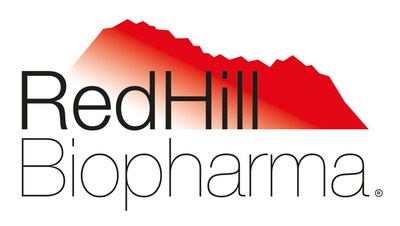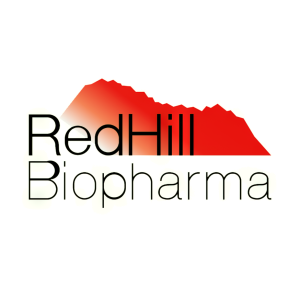RedHill's Opaganib Granted Orphan Drug Designation by the FDA for Childhood Cancer, Neuroblastoma
Rhea-AI Summary
RedHill Biopharma (Nasdaq: RDHL) has announced that the FDA has granted orphan-drug designation to opaganib for the treatment of neuroblastoma, a rare childhood cancer. This designation provides seven years of marketing exclusivity if approved and may offer additional benefits such as accelerated development and review times, potential grant funding, and tax credits.
Neuroblastoma accounts for up to 10% of childhood cancer cases and 15% of pediatric cancer-related deaths in the U.S. The neuroblastoma market is expected to reach nearly $1.5 billion before the mid-2030s. This is the second orphan drug designation for opaganib in oncology, following its designation for cholangiocarcinoma. Opaganib is being developed for multiple indications, including COVID-19, Ebola, and acute respiratory distress syndrome.
Positive
- FDA granted orphan-drug designation for opaganib in neuroblastoma treatment
- Seven years of marketing exclusivity if approved for neuroblastoma
- Potential for accelerated development and review times
- Neuroblastoma market expected to reach $1.5 billion before mid-2030s
- Second orphan drug designation for opaganib in oncology
Negative
- None.
News Market Reaction – RDHL
On the day this news was published, RDHL declined 6.54%, reflecting a notable negative market reaction.
Data tracked by StockTitan Argus on the day of publication.
Neuroblastoma is rare but is the most common infancy malignancy with a median age of diagnosis of 17 months. In the
Orphan Drug designation provides for seven-years' marketing exclusivity should opaganib be approved in neuroblastoma and may confer additional benefits such as accelerated development and review times, potential grant funding and possible tax credits
The neuroblastoma market is expected to reach almost
This is the second orphan drug designation by the FDA for opaganib in oncology, after cholangiocarcinoma (bile duct cancer, CCA)
With multiple

Orphan Drug designation provides for a seven-year marketing exclusivity period should opaganib be approved in neuroblastoma and may confer additional benefits such as accelerated development and review times, potential grant funding and possible tax credits.
"RedHill is proud to have received a second orphan-drug designation for opaganib in oncology, following its previous designation for cholangiocarcinoma (CCA, also known as bile duct cancer). This designation for neuroblastoma – the most common infancy malignancy and for which new options are urgently needed – adds to opaganib's potential as a novel oncological agent," said Dr. Mark Levitt, Chief Scientific Officer at RedHill. "Opaganib has broad oncology potential with promising preliminary clinical data in solid tumor cancers such as prostate cancer and CCA, and data from a range of
Neuroblastoma usually affects children aged five or younger but does also occur in older children. In
The neuroblastoma market is expected to reach almost
Opaganib is in development for multiple oncology, viral, inflammatory and diabetes and obesity-related indications, including COVID-19, Ebola, acute respiratory distress syndrome (ARDS) and radio/chemical protection.
About Neuroblastoma
Neuroblastoma is a type of cancer most commonly affecting babies and young children. It is rare but is the most common infancy malignancy with a median age of diagnosis of 17 months. In the
Neuroblastoma originates from nerve cells called neuroblasts, which are found in the adrenal glands (located above the kidneys) and in nerve tissue along the spine, chest, abdomen, or pelvis. The exact cause of neuroblastoma is not well understood, but genetic mutations and abnormalities are known to play a role. Some cases may be linked to genetic syndromes or family history, although most occur sporadically without a clear inherited pattern.
The outlook for children with neuroblastoma can vary widely. Factors affecting prognosis include the stage of the disease at diagnosis, the age of the child, and specific biological characteristics of the tumor. Neuroblastoma is known for its ability to sometimes regress spontaneously in very young children, but it can also be aggressive and challenging to treat, accounting for
About Opaganib (ABC294640)
Opaganib, a proprietary investigational host-directed and potentially broad-acting drug, is a first-in-class, orally administered sphingosine kinase-2 (SPHK2) selective inhibitor with anticancer, anti-inflammatory and antiviral activity, targeting multiple potential diseases, including obesity-related syndromes, prostate cancer and cholangiocarcinoma (bile duct cancer), gastrointestinal acute radiation syndrome (GI-ARS), Sulfur Mustard exposure, COVID-19, Ebola and other viruses as part of pandemic preparedness.
Opaganib's host-directed action is thought to work through the inhibition of multiple pathways, the induction of autophagy and apoptosis, and disruption of viral replication, through simultaneous inhibition of three sphingolipid-metabolizing enzymes in human cells (SPHK2, DES1 and GCS).
Opaganib has been selected for evaluation by two
Opaganib has demonstrated antiviral activity against SARS-CoV-2, multiple variants, and several other viruses, such as Influenza A and Ebola. Opaganib delivered a statistically significant increase in survival time when given at 150 mg/kg twice a day (BID) in a United States Army Medical Research Institute of Infectious Diseases (USAMRIID) in vivo Ebola virus study, making it the first host-directed molecule to show activity in Ebola virus disease. Opaganib also recently demonstrated a distinct synergistic effect when combined individually with remdesivir (Veklury®, Gilead Sciences Inc.), significantly improving potency while maintaining cell viability, in a
Being host-targeted, and based on data accumulated to date, opaganib is expected to maintain effect against emerging viral variants. In prespecified analyses of Phase 2/3 clinical data in hospitalized patients with moderate to severe COVID-19, oral opaganib demonstrated improved viral RNA clearance, faster time to recovery and significant mortality reduction in key patient subpopulations versus placebo on top of standard of care. Opaganib has demonstrated its safety and tolerability profile in more than 470 people in multiple clinical studies and expanded access use. Data from the opaganib global Phase 2/3 study was published in medRxiv.
Opaganib has received Orphan Drug designation from the FDA for the treatment of neuroblastoma and cholangiocarcinoma and has undergone studies in advanced cholangiocarcinoma (Phase 2a) and prostate cancer. Opaganib also has a Phase 1 chemoradiotherapy study protocol ready for FDA-IND submission.
Opaganib has also shown positive preclinical results in renal fibrosis, and has the potential to target multiple oncology, radioprotection, viral, inflammatory, and gastrointestinal indications.
About RedHill Biopharma
RedHill Biopharma Ltd. (Nasdaq: RDHL) is a specialty biopharmaceutical company primarily focused on gastrointestinal and infectious diseases. RedHill promotes the gastrointestinal drugs Talicia®, for the treatment of Helicobacter pylori (H. pylori) infection in adults[4], and Aemcolo®, for the treatment of travelers' diarrhea in adults[5]. RedHill's key clinical late-stage development programs include: (i) opaganib (ABC294640), a first-in-class oral broad-acting, host-directed SPHK2 selective inhibitor with potential for pandemic preparedness, targeting multiple indications with a
More information about the Company is available at www.redhillbio.com / X.com/RedHillBio.
Forward Looking Statements
This press release contains "forward-looking statements" within the meaning of the Private Securities Litigation Reform Act of 1995 and may discuss investment opportunities, stock analysis, financial performance, investor relations, and market trends. Such statements may be preceded by the words "intends," "may," "will," "plans," "expects," "anticipates," "projects," "predicts," "estimates," "aims," "believes," "hopes," "potential" or similar words and include statements regarding out-licensing of the Company's development pipeline assets, timing of opaganib's development for Acute Radiation Syndrome, non-dilutive development funding from RHB-107 and its inclusion in a key platform study. Forward-looking statements are based on certain assumptions and are subject to various known and unknown risks and uncertainties, many of which are beyond the Company's control and cannot be predicted or quantified, and consequently, actual results may differ materially from those expressed or implied by such forward-looking statements. Such risks and uncertainties include, without limitation: market and other conditions; the Company's ability to regain compliance with the Nasdaq Capital Market's minimum bid price requirements; the risk that the addition of new revenue generating products or out-licensing transactions will not occur; the risk that acceptance onto the RNCP Product Development Pipeline will not guarantee ongoing development or that any such development will not be completed or successful; the risk that the FDA does not agree with the Company's proposed development plans for opaganib for any indication; the risk that observations from preclinical studies are not indicative or predictive of results in clinical trials; the risk that the FDA pre-study requirements will not be met and/or that the Phase 3 study of RHB-107 in COVID-19 outpatients will not be approved to commence or if approved, will not be completed or, should that be the case, that we will not be successful in obtaining alternative non-dilutive development funding for RHB-107; the risk that RHB-107's late-stage development for non-hospitalized COVID-19 will not benefit from the resources redirected from the terminated RHB-204 Phase 3 study, and that the Phase 2/3 COVID-19 study for RHB-107 may not be successful and, even if successful, such studies and results may not be sufficient for regulatory applications, including emergency use or marketing applications, and that additional COVID-19 studies for opaganib and RHB-107 are likely to be required; the risk that the Company will not successfully commercialize its products; as well as risks and uncertainties associated with (i) the initiation, timing, progress and results of the Company's research, manufacturing, pre-clinical studies, clinical trials, and other therapeutic candidate development efforts, and the timing of the commercial launch of its commercial products and ones it may acquire or develop in the future; (ii) the Company's ability to advance its therapeutic candidates into clinical trials or to successfully complete its pre-clinical studies or clinical trials or the development of a commercial companion diagnostic for the detection of MAP; (iii) the extent and number and type of additional studies that the Company may be required to conduct and the Company's receipt of regulatory approvals for its therapeutic candidates, and the timing of other regulatory filings, approvals and feedback; (iv) the manufacturing, clinical development, commercialization, and market acceptance of the Company's therapeutic candidates and Talicia®; (v) the Company's ability to successfully commercialize and promote Talicia® and Aemcolo®; (vi) the Company's ability to establish and maintain corporate collaborations; (vii) the Company's ability to acquire products approved for marketing in the
1. https://www.ncbi.nlm.nih.gov/books/NBK448111/#:~:text=Neuroblastoma%20is%20the%20most%20common,of%20pediatric%20cancer%2Drelated%20deaths.
2. Yan P, Qi F, Bian L, et al. Comparison of Incidence and Outcomes of Neuroblastoma in Children, Adolescents, and Adults in
3. Shinde S., Pawar P. and Deshmukh R., Neuroblastoma Drugs Market Size, Share, Competitive Landscape and Trend Analysis Report, by Type, by Route of Administration, by Distribution Channel: Global Opportunity Analysis and Industry Forecast, 2023-2032, Allied Market Research, Jan. 2024, https://www.alliedmarketresearch.com/neuroblastoma-drugs-market-A172697.
4. Talicia® (omeprazole magnesium, amoxicillin and rifabutin) is indicated for the treatment of H. pylori infection in adults. For full prescribing information see: www.Talicia.com.
5. Aemcolo® (rifamycin) is indicated for the treatment of travelers' diarrhea caused by noninvasive strains of Escherichia coli in adults. For full prescribing information see: www.Aemcolo.com.
Logo: https://mma.prnewswire.com/media/1334141/RedHill_Biopharma_Logo.jpg
Company contact:
Adi Frish
Chief Corporate & Business Development Officer
RedHill Biopharma
+972-54-6543-112
adi@redhillbio.com
Category: R&D
![]() View original content:https://www.prnewswire.com/news-releases/redhills-opaganib-granted-orphan-drug-designation-by-the-fda-for-childhood-cancer-neuroblastoma-302230324.html
View original content:https://www.prnewswire.com/news-releases/redhills-opaganib-granted-orphan-drug-designation-by-the-fda-for-childhood-cancer-neuroblastoma-302230324.html
SOURCE RedHill Biopharma Ltd.







